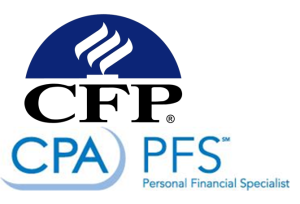Is my financial advisor a fiduciary?
Submitted by Desmond Wealth Management, Inc. on October 16th, 2015
The fiduciary duty requires an investment adviser by law, to act in the best interest of the client – rather than putting his or her own interests first. Sounds outrageous that there is anything but the requirement to put the client’s interests first, right? Sad but true, the majority of advisors in America are not subject to the fiduciary standard of care, but rather to a lesser standard that only requires doing what’s ‘suitable' for the client, and not what’s in their best interest.
Under the fiduciary duty, an investment adviser must provide advice and investment recommendations that he or she views as being the best for the client. In addition to being obligated to put clients’ interests ahead of their own, fiduciaries must also adhere to the duties of loyalty and care.
An investment adviser, subject to the fiduciary duty, is required to provide up-front disclosures to the client before any contracts are signed to provide investment advice. These disclosures cover important topics such as the investment adviser’s qualifications, services provided, compensation, range of fees, methods of analysis, a record of any disciplinary actions, and possible conflicts of interest if any.
What is the difference between a stockbroker and an advisor?
A stockbroker is defined as any person engaged in the business of effecting transactions (buying and selling securities – trading) for others. Because there are no standard requirements in the industry, brokers are able to use many different titles such as wealth manager, wealth advisor, investment consultant, financial advisor, financial consultant, and registered representative.
Regardless of their title, stockbrokers are generally not considered to have a fiduciary duty to the client. Stockbrokers are able to avoid the higher legal standard of the fiduciary duty due to an exemption they receive from the definition of Investment Adviser (fiduciary). In the eyes of the Investment Advisers Act of 1940, because their advice is merely incidental to the sale of their products, they are not required to act in the best interest of the client. Instead, they have a lower ‘suitability standard’ that requires them to recommend only what is suitable for the client, leaving plenty of room to do what’s in the best interest of the broker or the brokerage firm, instead of the client.
How do I know if my advisor has a fiduciary duty?
First of all, let me mention that if your investment advisor is a CFP® (Certified Financial Planner®) or a CPA (CPA/PFS – Personal Financial Specialist), they will most likely have a fiduciary responsibility. The CFP Board’s Standards require that all CFP® professionals who provide financial planning services will be held to the duty of care of a fiduciary, as defined by CFP Board. In addition, the AICPA Professional Code of Conduct embodies standards of conduct of a fiduciary—objectivity, integrity, free of conflicts of interest, and truthfulness. (Click here to read the previous article on CPA/PFS)
Generally, if the following three elements are present in a client relationship, a CPA may be deemed to be a fiduciary to their client: (i) the accountant holds himself or herself out as an expert in an aspect of business, (ii) the client places a high degree of trust and confidence in the accountant and (iii) the client is heavily dependent upon the accountant’s advice. An accountant who provides investment advisory services as a Registered Investment Adviser is a fiduciary to his or her advisory clients.
The best way to find out whether your advisor is a fiduciary is to ask these questions:
- Do you have a fiduciary responsibility?
- Will my account be a brokerage account or an advisory account?
- May I have a copy of your Form ADV? This is a disclosure document that describes many aspects of the business including fees, compensation, disciplinary information, conflicts of interest, education, background and more. Brokers are not required to have this document.
- What licenses do you hold? A “series 7 license” means the advisor is a registered stockbroker, where a “series 65 or 66” means he or she is a registered investment advisor.
- What are your credentials? Credentials are different than licenses. Credentials demonstrate a level of education, training, and experience at a higher level. The two most recognized credentials for financial planning, which both hold a fiduciary duty are the CFP® (Certified Financial Planner®) and the CPA/PFS.
As CPA/Wealth Managers, our advisors at Desmond Wealth hold fiduciary responsibility. We are a Registered Investment Advisory firm and highly value our role as a fiduciary to our clients.

